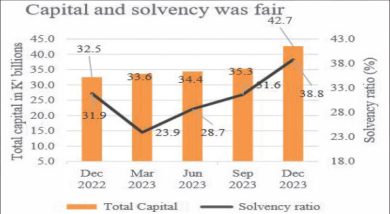War on liquor sachets resurfaces
The Alcohol Policy Alliance (APA) says Malawi Government must completely ban the production of liquor in sachets as one way of reducing alcohol related problems in the country.
In a letter sent to the Ministry of Health, the group’s secretary Baziwelo Zakeyu said they want a total ban of liquor in sachets as well as legalising the minimum packaging of alcohol beverages from the current 30millilitres to 300 ml and not to 100ml as announced by the Ministry of Industry and Trade.
“Alcohol Policy Alliance would like to see a total protection of children by limiting the affordability and accessibility of liquor at all means and 100 ml would not solve matters as the volume will still be small and; hence, the sachets will continue being offered at very low prices,” reads the statement in part.
The group says it is concerned with the great increase of alcohol consumption since it is one of the most significant risks to health. Alcohol is the third largest contributing factor to injury and diseases worldwide. Heavy consumption of alcohol in a poor country such as Malawi has a negative impact on the nation goals, putting lives of people at high risk of death.
But Malawi’s Principal Secretary in the Ministry of Industry and Trade Nebert Nyirenda argued that packaging is not an issue, but how the product is being sold.
“The decision to increase the package from 30ml to 100 ml came from the producers of sachets after several consultations with several stakeholders and we have no problem with that. What we are worried with is the way the alcohol is sold. We want to work hard to make sure that the sachets are not found everywhere, like the situation is now. We want to solve the problem of alcohol being accessed by children,” he explained.
APA says it is also worried with the delay to approve the draft National Alcohol Policy which was submitted to the Ministry of Health in November 2011 for government’s approval.
“While understanding that there are a number of technical issues that had to be looked at ministerial level, members of APA are getting worried with time, considering a growing number of alcohol–related problems that continue affecting the society, particularly among young children and youth,” says the group.
It observes that the development process of alcohol policy started in 2007 at a consultative meeting conducted by a non-governmental organisation (NGO), Drug Fight Malawi ,where participants from government strategic ministries and civil society were to discuss alcohol related problems in the country and how best to solve them.
They argue that up to now there is no word from government.
According to APA, the draft National Alcohol Policy has good proposals from the majority of Malawians collected through district consultations that if adopted, would address the issues of liquor in sachets and unrecorded alcohol, among other areas.




